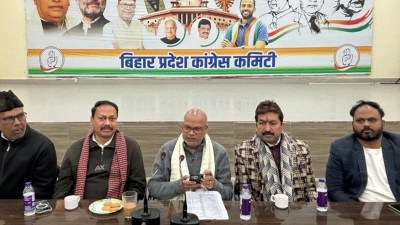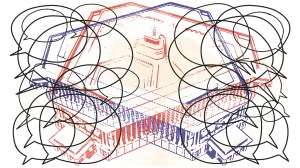In the face of backlash, the Central Board of Secondary Education (CBSE) Monday expressed regret over a comprehension passage that was part of its Class 10 English question paper. The passage has been dropped, students are to get full marks for all its accompanying questions, and the Board has said it will review its question paper-setting process.
The passage has been decried for the sexist values it seemed to endorse, although, according to the CBSE answer key, the writer of the passage “takes a light hearted approach to life”.

So why exactly did the passage provoke such outrage, whose echoes were heard in Parliament?
‘Regressive education’
Broadly, the passage suggests that children don’t obey their parents anymore because wives don’t obey their husbands, thereby losing authority over their progeny. This has led to children and servants no longer “knowing their place”. It also says that earlier, women were “likely to see much more of” the children, and their “best plan” was to “fall back on the authority of an absent husband”.
The passage seems to promote the idea of a household where the man earns and is the “master of the house”; the woman rears children while the husband is absent doing manly things; she has little to no authority of her own but derives it from the man; and that without the virtue of obedience, children and servants are likely to forget their place.
In the process, it reinforces the concept of inequality between genders that women have been able to challenge — only to a degree — through a long, hard battle that is still very much on. The passage seems to champion retarding the little progress that has been made in promoting gender equality, at a time when schools need to be doing much more to sensitise the young on issues of gender and sexuality.
It also suggests that “subordination” and “obedience” are among the more useful tools of child-rearing, with the father playing the role of the “infallible tyrant” whose word should have “the authority of holy writ”. The concept of a tyrant demanding unquestioning subordination is hardly a healthy parenting technique — for kids of any age, and specially not for teenagers, who have just started exploring the process of becoming their own person.
Story continues below this ad
What to many is particularly egregious here is that this was part of a question paper by one of the largest government education boards in India, meant for impressionable teenagers not far from adulthood. As many parents would have experienced, children often take whatever is taught in school very seriously, more that what they learn at home.
Reading the lines, and between them
If we were to take a closer look at the individual paragraphs in the passage, one goes: “What people were slow to observe was that the emancipation of the wife destroyed the parent’s authority over the children. The mother did not exemplify the obedience upon which she still tried to insist… In bringing the man down from his pedestal the wife and the mother deprived herself, in fact of the means of discipline.”
 The paragraph from the question paper
The paragraph from the question paper
Authority over children, if imposed purely through an insistence on obedience, is part of poor parenting. If emancipation is threatening authority, that authority was unjustly imposed. If the woman has to obey her husband to set an example to her children, the only thing she is “exemplifying” are sexist roles, where a man should not expect questions or accountability and a woman should meekly submit to her lot. Also, the para refers to the man as ‘man’, while the woman is ‘mother’ or ‘wife’, seemingly suggesting that she the individual has no identity beyond the roles defined in relation to husband and children.
Story continues below this ad
Of course, the most dangerous part about this is that to a lot of people, the passage says nothing wrong. And an education board reinforcing patriarchal messages, in a country where gender and sexual crimes are rampant, contributes to building an unsafe and unhappy world for all children, of all genders.
One of the questions based on the passage asks whether the writer “seems to be a male chauvinist pig/an arrogant person”; “takes a light hearted approach to life”; “is a disgruntled husband”; or “has his family’s welfare at his heart”. According to the board’s answer key, the correct answer is “takes a light hearted approach to life”. A lot of girls who sat for this exam would by now have encountered sexism in many forms, including the dismissing of misogynist statements as “a harmless joke” or something said “just for fun”. Here, the central education board of the country apparently thinks the relegation of women to only wives and mothers, denying them equality, and blaming them squarely for “disobedient teenagers” is a “light-hearted approach to life”.
 Another para goes: “It was only by accepting her husband’s sway that she could gain obedience from the young. The decision might be hers but the unpopularity was his, the more easily borne in that he might not be there. To precepts about subordination she has thus added the potent force of an example. Children and servants were in this way taught to know their place.”
Another para goes: “It was only by accepting her husband’s sway that she could gain obedience from the young. The decision might be hers but the unpopularity was his, the more easily borne in that he might not be there. To precepts about subordination she has thus added the potent force of an example. Children and servants were in this way taught to know their place.”
In other words, a woman can’t gain obedience without surrendering her “sway” to her husband’s; husbands are not to play an equal role in parenting as they “might not be there”; unpopular decisions are to be “borne” and not explained; and children have a very specific “place” in a home that, instead of being a nurturing environment, is a hierarchical institution. The clubbing of “…and servants” is elitist, anti-equality, and in the Indian context, casteist. One of the questions for the passage asks what should its title be, and one of the options is “Place of Children and Servants at Home”.
Story continues below this ad
Choice of prose
The ‘comprehension’ passage also has some rather incomprehensible lines: “In the twentieth century children became fewer and the feminist revolt was the result”. Fewer children meant women had time to revolt is one possible, but flummoxing — not to mention deeply problematic — interpretation of this. Another line goes: “Father’s word no longer had the authority of holy writ and given the Bible itself was relegated to a high shelf quite unsuitable for the young.” Apart from being grammatically incorrect, the statement makes a cryptic reference to the Bible, previously unmentioned and subsequently unexplained.
The world of English literature, including English translations from other languages, is rich with prose that is beautifully written, while being educational, informative, stimulating, amusing. Why the central board of education in India chose a passage of questionable grammar, that seems to legitimise the very concepts we are fighting in order to establish a fair society that confirms to the values of equality enshrined in our Constitution, does defy comprehension, and that is what provoked the outrage witnessed since Sunday.
Newsletter | Click to get the day’s best explainers in your inbox



 The paragraph from the question paper
The paragraph from the question paper





































